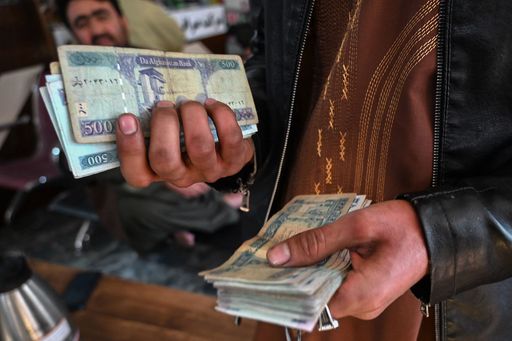Nearly 450,000 Afghans have returned from Iran since the start of June, the United Nations’ migration agency has said, after Tehran ordered those without documentation to leave by July 6.
In late May, Iran said undocumented Afghans must leave the country by July 6, potentially impacting four million people out of the around six million Afghans that Tehran says live in the country.
But the efforts to crack down on foreign nationals were stepped up during Iran’s 12-day conflict with Israel.
The number of people crossing the border has surged since mid-June, with some days seeing around 40,000 people crossing at Islam Qala in western Herat province, UN agencies said on Monday.
From June 1 to July 5, 449,218 Afghans returned from Iran, a spokesman for the International Organization for Migration told AFP on Monday, adding that the total for the year so far was 906,326.
Many people crossing reported pressure from authorities or arrest and deportation, as well as losing already limited finances in the rush to leave quickly.
Massive foreign aid cuts have impacted the response to the crisis, with the UN, international non-governmental groups, and Taliban officials calling for more funding to support the returnees.

The UN has warned that the influx could destabilise the country, already grappling with entrenched poverty, unemployment, and climate crisis-related shocks, and urged nations not to forcibly return Afghans.
“Forcing or pressuring Afghans to return risks further instability in the region, and onward movement towards Europe,” the UN refugee agency UNHCR said in a statement on Friday.
Spy hunt
An Afghan who returned from Iran said, "They saw us as suspected spies and treated us with contempt.”
"From ordinary people to the police and the government, they were always saying, 'You Afghans are our first enemies; you destroyed us from inside, “ he added.
“We’ve always striven to be good hosts, but national security is a priority, and naturally, illegal nationals must return,” Iran’s government spokesperson Fatemeh Mohajerani said last week.
That did not mean expulsion, however, but rather a return to their homeland, the spokesperson added, without mention of a hunt for spies.
Before a ceasefire was struck in their 12-day war, Iran and Israel traded strikes, which the US joined with an attack on Iran’s uranium enrichment facilities.
On national security grounds, Iran had already been cracking down this year on foreign nationals, including Afghans, but stepped up its efforts during the conflict, deporting Afghans, humanitarian officials said in interviews.

Iranian authorities estimated about 2.6 million Afghans were living in the country without legal documentation in 2022, following the fall of Kabul as US-led foreign forces withdrew.
In an interview, Arafat Jamal, the UNHCR representative for Afghanistan, said he was concerned about the pushback, as anger at the strikes could have spilt over on Afghans in Iran.
“They have undergone a very frightening war; we understand that, but we also feel that perhaps the Afghans are being scapegoated and some of the anger is being taken out on them,” he told Reuters in Kabul.



















